Pine bud syrup
Ally of respiratory diseases
Pine bud syrup, obtained by boiling with sugar is used both for therapeutic purposes to treat respiratory diseases: cough, bronchitis, pharyngitis, laryngitis, ... and for its taste and aroma in soft drinks.
Servings: 30 servings
~ 30 tablespoons in 750ml of pine bud syrup (1 tbsp = ~ 25g)
Ingredients
Materials
- - cooking vessel: pot / saucepan
- - site
- - spoon
- - glass containers
Preparation
 Pine buds are washed well under running water. If necessary, clean it of any impurities.
Pine buds are washed well under running water. If necessary, clean it of any impurities. Add the pine buds in a pot large enough to fit with the water. Water is added (~ 1 liter), but generally enough to cover them.
Add the pine buds in a pot large enough to fit with the water. Water is added (~ 1 liter), but generally enough to cover them. Boil the mixture of pine buds with water for ~ 30 minutes on medium heat. The water should become slightly milky, cloudy.
Boil the mixture of pine buds with water for ~ 30 minutes on medium heat. The water should become slightly milky, cloudy. After boiling, leave the mixture to infuse, covered with a lid, for about 12 hours or overnight. This step can be skipped, but if you have time, we also recommend the infusion, because in this way we can be sure that all the vitamins and minerals contained in pine buds will be extracted.
After boiling, leave the mixture to infuse, covered with a lid, for about 12 hours or overnight. This step can be skipped, but if you have time, we also recommend the infusion, because in this way we can be sure that all the vitamins and minerals contained in pine buds will be extracted. In this step, we will strain the liquid obtained. I used a sieve press and a strainer. Boiled buds are thrown away, although they can probably be used as fertilizer for the soil of certain plants, ...
In this step, we will strain the liquid obtained. I used a sieve press and a strainer. Boiled buds are thrown away, although they can probably be used as fertilizer for the soil of certain plants, ... For the resulting amount of liquid, 1 to 1 sugar will be needed. Basically, for 1 liter of liquid, 1 kg of sugar will be needed. In this recipe I used brown sugar.
For the resulting amount of liquid, 1 to 1 sugar will be needed. Basically, for 1 liter of liquid, 1 kg of sugar will be needed. In this recipe I used brown sugar.
Put the strained liquid together with the sugar to boil over medium heat for about 30 minutes.
Caution: throughout the cooking, stir almost continuously with a spoon. For the last 5 minutes of boiling, squeeze the juice from a lemon and add to the composition.
For the last 5 minutes of boiling, squeeze the juice from a lemon and add to the composition. At the end should result in a slightly thin, reddish-brown syrup, which after cooling should thicken. This can be verified by the classic method: put a tablespoon of syrup for a few minutes to cool and it should change its consistency, becomming thicker.
At the end should result in a slightly thin, reddish-brown syrup, which after cooling should thicken. This can be verified by the classic method: put a tablespoon of syrup for a few minutes to cool and it should change its consistency, becomming thicker. We will leave the obtained syrup for ~ 5 minutes to cool (slightly cooled), then pour it into glass containers (recommended sterilized) that will close / seal tightly.
We will leave the obtained syrup for ~ 5 minutes to cool (slightly cooled), then pour it into glass containers (recommended sterilized) that will close / seal tightly.- If we want to keep the syrup for longer (more than 6 months), it is recommended after sealing the glass containers, their slow cooling. Slow cooling can be done by covering the containers with a towel or a thick blanket for about 12 hours.
- Se depozitează la loc răcoros și întunecat.
Administration
For respiratory diseases, consume 3-5 tablespoons of syrup / day.
After administration, we recommend not drinking or eating for 30 minutes. In children the spoon will be replaced with a teaspoon!
Observations
It is good for pine buds to be fresh. The maximum time from harvesting the pine buds to cooking should be a maximum of 5 days (store in the refrigerator).
To get a more interesting color, you can use brown sugar.
Pine bud syrup, obtained by boiling with sugar, can be stored for about 2-3 years.
Once a bottle of syrup is opened, it must be refrigerated and consumed within 30 days.
Volatile pine oils are those that have a bronchodilator effect (makes breathing easier). Studies show that pine bud syrup would be more effective than fir bud syrup.
Pine bud syrup has beneficial effects in chronic bronchitis, persistent cough, asthma, tracheitis, pharyngitis, flu, colds, sinusitis and even tuberculosis.
Effects and benefits
- maintains the health of the respiratory system
- prevents and can treat cough, hoarseness, laryngitis, pharyngitis, bronchitis
- helps to decongest the respiratory tract and treat its irritations
- effective in treating whooping cough
- normalizes bronchial secretions
- remedy against colds
- It is used to treat migraines
Side effects
In large quantities it can become a diuretic
Contraindications
For people with allergies, pregnant women, breastfeeding women and children under 3, it is good to consult a doctor.
Other benefits of pine buds:
- Improve eyesight
- They have an energizing effect
- Improve heart health
- Prevent premature aging
- Reduce the risk of cancer
- Helps to lose weight
- Fight fatigue
FAQ 💡❓
Why do herbal syrups sometimes relieve coughs faster than pills?
➡️ Plants act holistically: they not only suppress the cough reflex, but also soothe the mucous membrane, thin secretions and support natural regeneration.
How does pine manage to act as a "vacuum cleaner" for the lungs?
➡️ Pine buds contain volatile compounds that penetrate deep into the respiratory tract, dissolve mucus and reduce inflammation.
Is homemade syrup more effective than the one from the pharmacy?
➡️ Often yes – because it does not contain preservatives, synthetic flavors and fully preserves the active phytonutrients from plants.
What makes the difference between a syrup with a real effect and one that is just sweet?
➡️ The presence of bioactive compounds (terpenes, resins, vitamin C) in sufficient quantities. The sweet taste alone does not mean therapeutic efficiency.
Why is this syrup considered more than just a cough medicine?
➡️ It also has immune, detoxifying, anti-stress and even slightly anti-allergic effects – being a complex natural tonic.
Can it be used preventively, not just when we already have a cold?
➡️ Absolutely. One tablespoon a day, during cold or stressful periods, can significantly reduce the risk of respiratory infections.
Is this remedy safe for the whole family?
➡️ Except for children under 2 years old (because of the honey), yes – it is a gentle but powerful remedy, well tolerated even by the elderly.
Is there an ideal time of day to take the syrup?
➡️ In the morning, for an immune tonic effect or in the evening, to calm the cough. In acute cases – even 3 times a day.
Why is the bud harvest period important?
➡️ Because in the early stages they have the highest content of volatile oils and resins – exactly what gives the syrup its effectiveness.
Can this syrup be combined with other medicinal herbs?
➡️ Yes – linden, thyme, ginger or rock lichen can enhance its expectorant and immunostimulating effects.
Is it also a useful remedy for seasonal allergies?
➡️ It can help by reducing inflammation and clearing the airways, but it is not a classic antihistamine. It is more of a natural adjuvant.
What is the difference between syrup obtained by boiling and cold maceration?
➡️ Boiling intensifies the extraction, but can destroy certain heat-labile compounds. Maceration preserves enzymes, but takes longer.
Is it also beneficial in cases of physical or mental exhaustion?
➡️ Yes – due to its general toning effect, the syrup can help in convalescence or chronic fatigue.
Is it also effective for smoker's cough?
➡️ It can soothe irritation and reduce mucus, but it does not replace quitting smoking. However, it is an excellent natural support.
Are there any important contraindications?
➡️ Yes – it is not recommended for diabetics (due to sugar), nor for those with allergies to conifers. During pregnancy, only with medical advice.
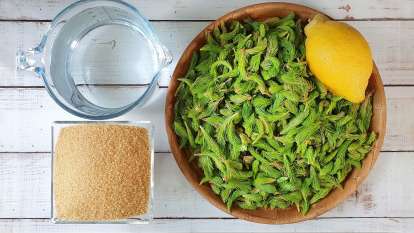
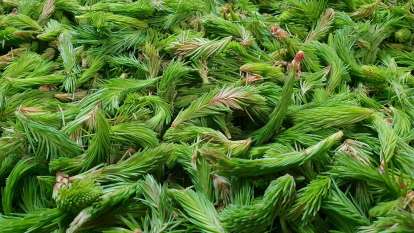
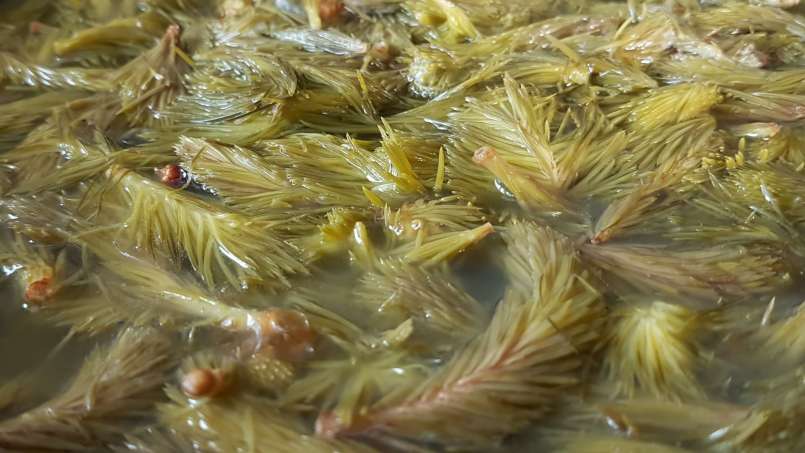
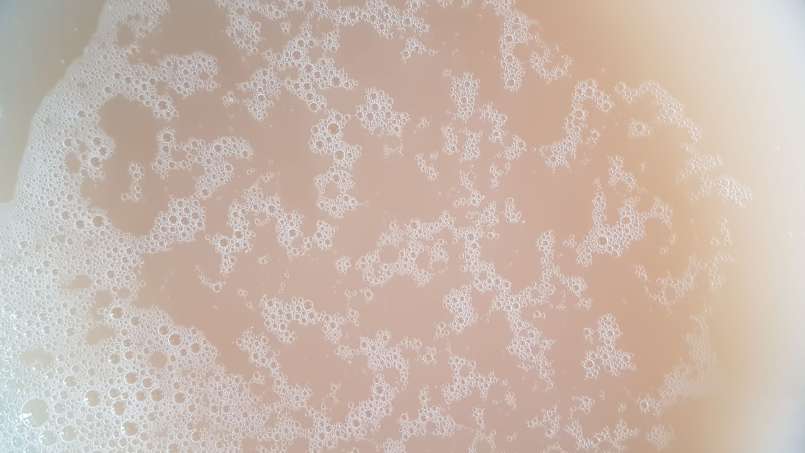
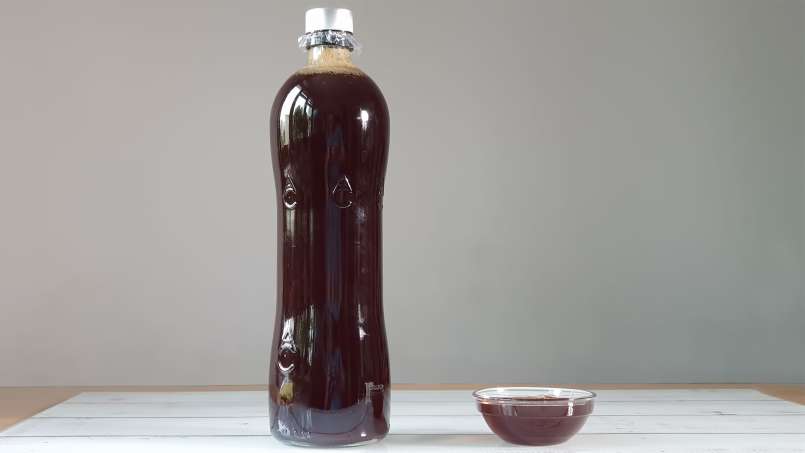
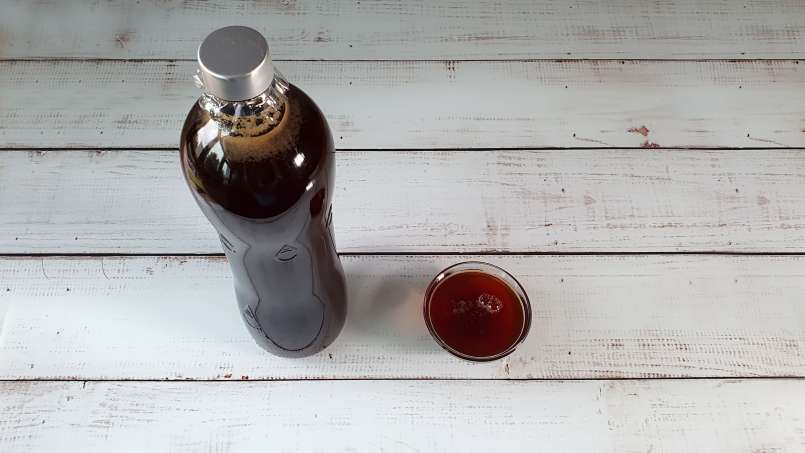
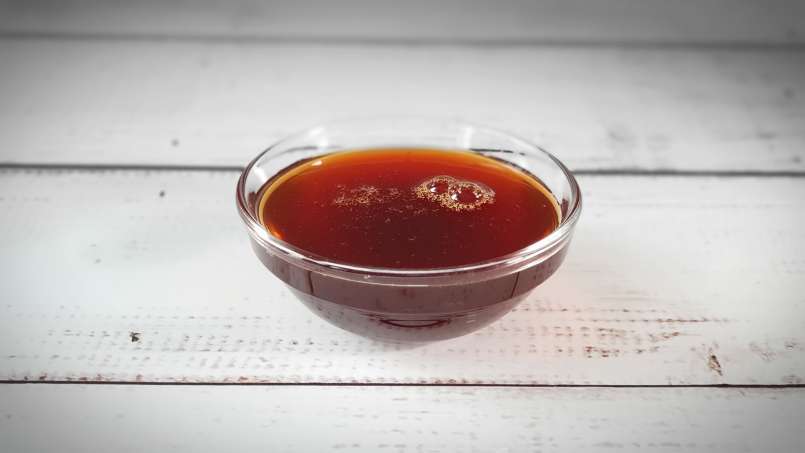
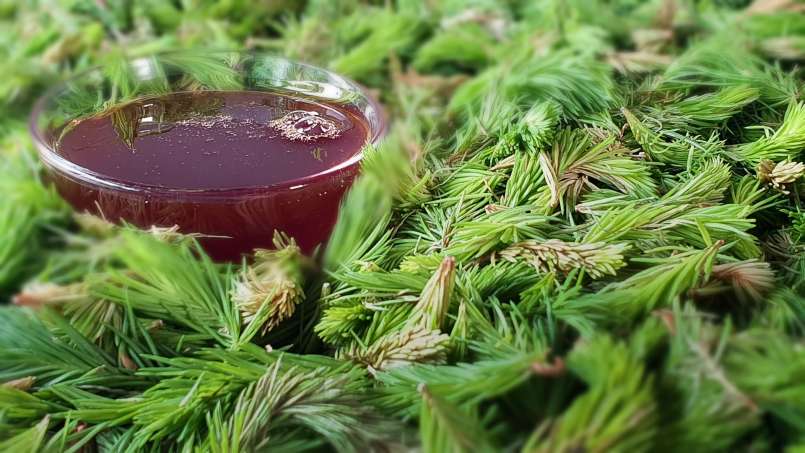
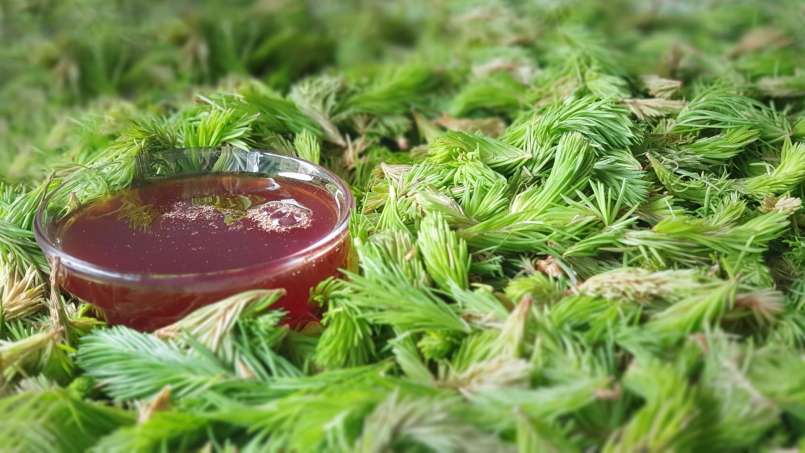
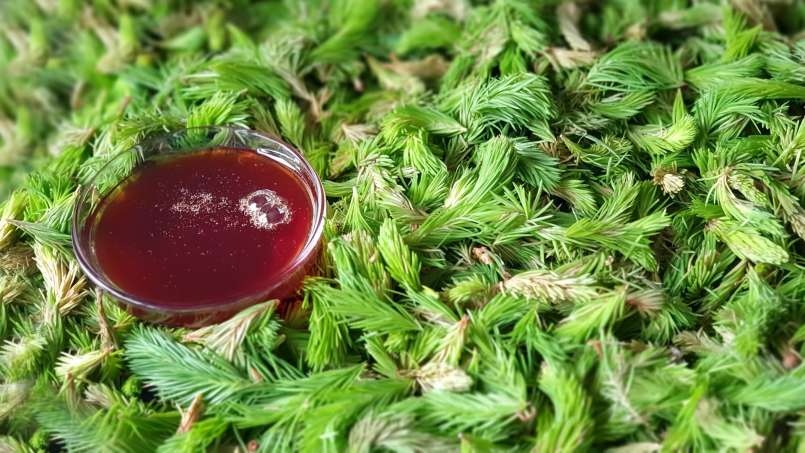
Comments
anonymous
A really good syrup